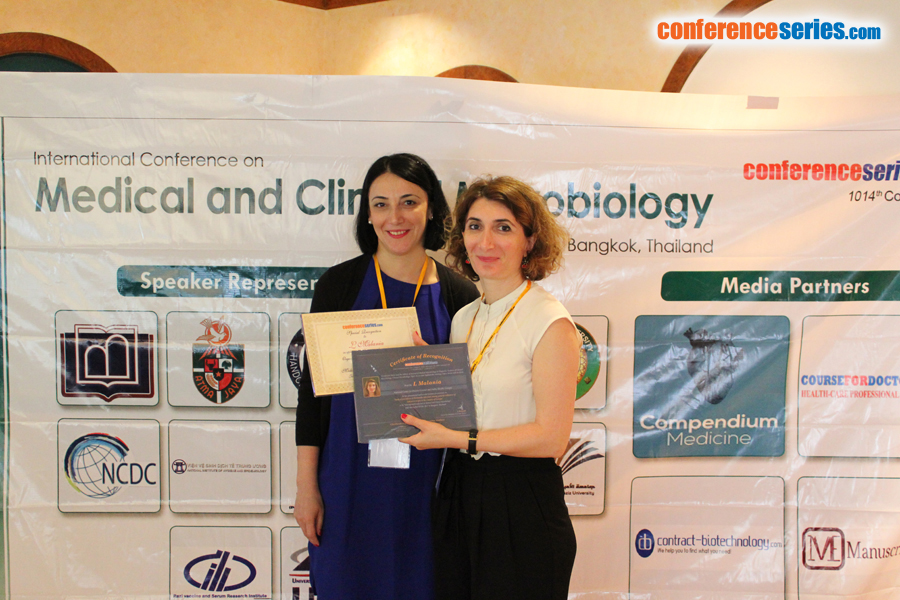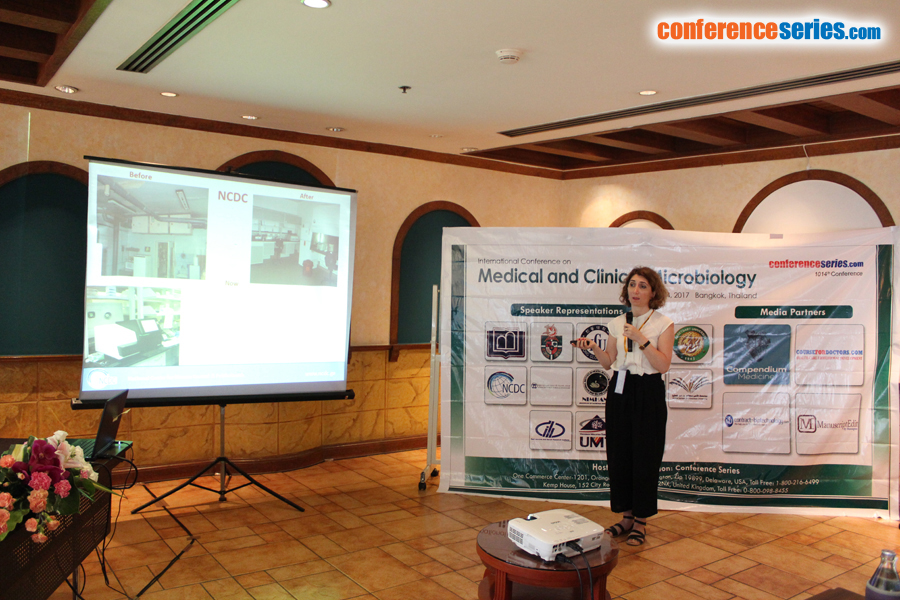
L Malania
National Center for Disease Control & Public Health, Georgia
Title: Study of prevalence of Bartonella infections among patients with fever of unknown origin in the country of Georgia
Biography
Biography: L Malania
Abstract
Statement of the Problem: Only few years ago the diseases caused by Bartonella spp. were viewed as medical curiosities. During recent years it has become apparent that Bartonella species are associated with many illnesses other than the previously recognized cat-scratch disease, trench fever, Carrion’s disease, neuroretinitis, Peliosis hepatis and bacillary angiomatosis. Bartonella-associated illnesses involve a broad spectrum of signs and symptoms. In the present study, our objective was to detect a presence and diversity of Bartonella species among patients with fever of unknown etiology in Georgia. Methodology & Theoretical Orientation: 298 clinical samples (149 - whole blood, 149 - sera) collected in 2015-2016 from the cases with fever of unknown etiology from different clinics of Georgia had been collected; whole blood were plated out on the Chocolate agar and incubated in anaerobic conditions with 5% CO2 for up to 45 days; DNA was extracted from each blood samples and PCR were run to identify presence of Bartonella spp; have been conducted serological investigation of all 149 clinical (sera) samples. Were used four different antigens by Indirect Fluorescent Assay – B. elizabetae, B. tribocorum, B. quintanae, B. hensalae. Findings: We have screened 149 human blood samples by culturing. No Bartonella isolates were obtained from any of these specimens tested. Out of 149 blood tested by conventional PCR assay using gltA primers, only 3 of them gave positive results. Serological investigation of 149 sera 9 samples were confirmed as positive for antibody against B. hensalae and 16 samples were positive on B. quintanae antigen. Totally 16,77% of enrolled cases were positive. Conclusion & Significance: As a result of this study, data on the distribution of Bartonella bacteria in humans are collected for the first time in Georgia. Next steps will be to determine factors associated with the emergence of bartonellosis in Georgia.
Speaker Presentations
Speaker PPTs Click Here




